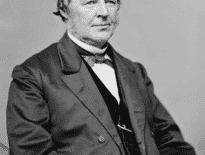
Cambridge Trust Co. and Brookline Bancorp will see their assets grow to $5.5 billion and more than $10 billion, respectively, as a result of their most recent merger deals.
In less than 18 hours last month, Greater Boston saw two more banks announce acquisition deals, continuing the merger and acquisition activity that had slowed during the pandemic’s first year.
Shortly after markets closed on May 23, Cambridge Trust announced plans to acquire North Andover-based Northmark Bank. Before markets opened the next morning, Brookline Bank’s parent company announced it would acquire New York-based PCSB Bank, operating it as a separate subsidiary.
Unlike several mergers in 2021, these deals won’t reshape Greater Boston’s banking landscape. But analysts say they see strategic, longer-term impacts for each bank.
Consolidation Continues
The latest deals join two other mergers this year that have mutual banks as buyers. East Cambridge Savings Bank is acquiring Woburn-based Patriot Community Bank which, like Northmark Bank, is a privately held stock bank. Hometown Financial Group, a multi-bank holding company, is acquiring Envision Bank, a publicly traded stock bank, and merging it with Abington Bank.
While critics of bank mergers often cite the effects of branch closings and limited competition that result from consolidation, most of these deals will not involve branch closings. Even Hometown Financial Group’s acquisition is likely to see limited closings, with Envision and Abington having only one community where both banks have branches.
Bank consolidations, already a long-term trend, are expected to continue this year and in the coming years, said Cheryl Pate, a portfolio manager with Angel Oak Capital Advisors. Pate said larger community banks and smaller regional banks in particular stand to benefit from mergers and acquisitions.
“There are clearly scale benefits to consolidation,” Pate said. “I think the cost savings that can be attained through a consolidation are pretty meaningful and tangible.”
Bank consolidation will help banks improve efficiency ratios as they face high operating costs as more spending goes toward technology, Pate said. She added that the current inflationary environment also highlights expenses banks might expect to face, particularly as personnel costs increase.
Brookline Bancorp said it expects to see 30 percent cost savings from acquiring PCSB Financial Corp., and Cambridge Trust’s parent company, Cambridge Bancorp, said it expects cost savings of 35 percent with its deal.
Cambridge Trust Connects Markets
By merging with Northmark, Cambridge Trust will gain three branches in North Andover, Andover and Winchester, markets where the bank currently does not have branches.
In a report on the merger, Piper Sandler analysts Mark Fitzgibbon and Gregory Zingone wrote that the deal made sense for Cambridge Trust from a strategic perspective. Piper Sandler is acting as Cambridge Trust’s financial adviser on the deal.
Piper Sandler noted that Northmark operates in affluent areas, likely giving Cambridge Trust wealth management opportunities.
“We would characterize Northmark as a plain vanilla commercial/community bank,” the analysts said. They added: “[W]e think this is exactly the kind of transaction that Cambridge ought to be doing to enhance the value of its franchise.”
Chris O’Connell, a director with Keefe, Bruyette and Woods, said Northmark had minimal credit issues and provided Cambridge Trust with a low-risk, logical deal. He noted that Northmark’s branches in Winchester, North Andover and Andover create a link between Cambridge Trust’s Greater Boston and New Hampshire markets.
“The in-market, contiguous nature of the deal bringing those two franchises together makes it really straightforward and easy to get a grasp on the strategic aspects of why they would want to do the deal,” O’Connell said.
He added that the upward movement of the bank’s stock following the announcement showed that investors viewed the deal favorably. He added that the buyer’s stock typically does not go up right after a deal is announced.
Northmark has about $442 million in assets, and the deal will give Cambridge Trust about $5.5 billion in assets. O’Connell does not expect Cambridge Trust to put itself up for sale in the near future. He said this deal, as well as operating amid the ongoing disruption that other mergers have created in Greater Boston, sets the bank up for growth in the coming years.
Will Brookline Deal Help or Hurt?
Brookline Bancorp’s acquisition of PCSB Bank is a more unique transaction, O’Connell said. The deal will give Brookline Bancorp, which also owns Brookline Bank and Bank Rhode Island, three subsidiary banks with separate charters in different states. The deal will push Brookline Bancorp over $10 billion in assets, a threshold which comes with additional regulatory requirements and costs.
The move into the New York City market could make Brookline Bancorp less desirable in the future.
Rather than acquiring a bank in a nearby or adjacent market, the company chose to enter the New York City metro market. O’Connell said moving into the new market could provide Brookline’s franchise with longer-term strategic benefits, but jumping markets holds some risks, as suggested by an initial drop in the bank holding company’s stock price after the deal was announced.
Analysts had thought Brookline would potentially sell itself, a move now unlikely in the short-term.

Diane McLaughlin
“This expansion may have put that timeline of Brookline itself as a potential seller out a little bit longer,” O’Connell said. “But what it does do is perhaps down the line create a more attractive franchise [since] they’ll be creating a broader, full-encompassing Northeast franchise from Boston all the way down to New York.”
But Laurie Hunsicker, an analyst with Compass Point, said the move into the New York market could make the bank holding company less desirable in the future.
“[W]hile PCSB is a whistle-clean bank operating in desirable NY markets, we note that this deal substantially widens [Brookline Bancorp’s] franchise footprint, pushing the deposit franchise outside of New England, which in the future, may make [Brookline Bancorp] a less desirable acquisition candidate should the board decide to pursue a sale,” Hunsicker said. “However, we still underscore that the [Brookline Bancorp] franchise is still highly desirable.”




 |
| 
